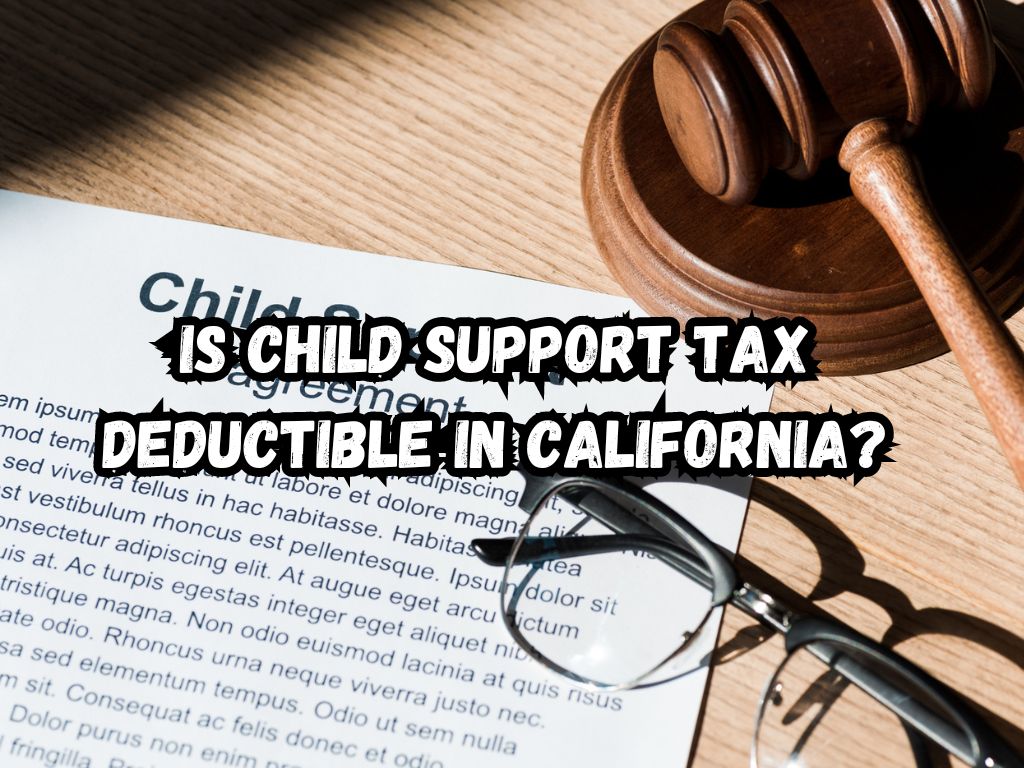Navigating the financial aspects of a divorce can be complicated, especially when children are involved. Child support is a critical component of post-divorce arrangements, designed with the well-being of your children in mind.
But, is child support tax deductible in California?
As a resident of California, you may be wondering about the tax implications of these payments. Is child support tax-deductible? Let’s get into the details to provide clarity on this matter.
Overview of Child Support in California
Child support is money paid by one parent to another to help cove the costs of raising a child after a separation or divorce. In California, the court system uses established guidelines to decide the amount of support.
The goal is to maintain a standard of living that is similar to what children would have enjoyed if their parents were together. This support is used for housing, food, education, and other child-related expenses.

Child Support and Federal Tax Laws
Under federal tax laws, child support payments do not directly affect your tax obligations. The IRS does not consider child support payments to be taxable income for the recipient.
This policy avoids double taxation. Funds used for child support have already been taxed as the income of the paying parent.
The payer does not receive a tax deduction. Alimony, a separate financial obligation, is handled differently for tax purposes but should not be confused with child support.
Is Child Support Tax Deductible in California?
When we focus on California, the rule aligns with federal law. In simple terms, child support is not tax-deductible.
Payments made for child support in California offer no tax relief to the payer. Similarly, the parent receiving these funds does not need to report them as income.
This treatment of child support aims to keep the primary focus on the child’s financial stability, without complicating it with tax advantages or obligations for parents.
Tax Benefits Related to Child Support
While child support payments themselves are not deductible, other tax benefits related to your children can impact your return.
Parents may be eligible for the Child Tax Credit, which can reduce the federal income tax they owe for each qualifying child. Remember that only one parent can claim the tax credits associated with a child each year. Usually, it is the custodial parent – the one the child lives with for the greater part of the year.
However, in some cases, the noncustodial parent might be able to claim the tax credit if the custodial parent signs a waiver.
Child Support Enforcement
In California, ensuring that child support orders are honored is a primary focus of the state’s enforcement program overseen by the California Department of Child Support Services (DCSS).
The DCSS has a number of enforcement tools at its disposal to address late or missed child support payments effectively. Tactics include income withholding orders, which automatically deduct child support obligations from the paying parent’s wages and notify employers legally to withhold these funds for payment.
When these measures are insufficient, the DCSS can intercept state and federal tax refunds, place liens on real estate, freeze and seize bank accounts, and claim lottery winnings.
Additional enforcement actions may include the suspension of state-issued licenses, such as driver’s, business, or professional licenses. For cases of severe delinquency, the non-paying parent may face passport denials and can be referred for contempt of court, which carries potential penalties from monetary fines to incarceration.
This structured array of enforcement strategies serves to maintain the reliability of child support payments, thus safeguarding children’s financial needs.
Pro Tips
Though child support is not tax-deductible, proper management of these funds is still necessary. Follow these tips for peace of mind and financial stability:
- Keep detailed records: Document all payments received or made, including dates, amounts, and methods of payment.
- Regular review: Life changes, such as income fluctuation or a new job, can impact your tax situation. Review your finances often.
- Professional advice: Tax laws can be complex, and professional guidance can be invaluable. Connect with a tax advisor or attorney for personalized assistance.

Frequently Asked Questions
Can I deduct my attorney fees or court costs associated with obtaining child support?
No, these costs are personal legal expenses and are generally not deductible.
How does joint custody impact who gets to claim the children on their taxes?
The IRS typically allows the custodial parent to claim the child as a dependent. However, a custody agreement may vary the terms.
Could changes in my income or family situation impact my taxes relating to child support?
Yes, life changes can affect your tax situation. Consult a tax professional for advice tailored to your circumstances.
Conclusion
Understanding the relationship between child support and taxes is essential for parents managing post-divorce finances.
In California, the law is clear: child support payments are neither deductible for the payer nor taxable for the recipient.
Your focus should remain on supporting your children, but don’t overlook other tax credits you’re entitled to. When in doubt, seek professional tax advice to navigate these matters confidently.


 Tags:
Tags:










